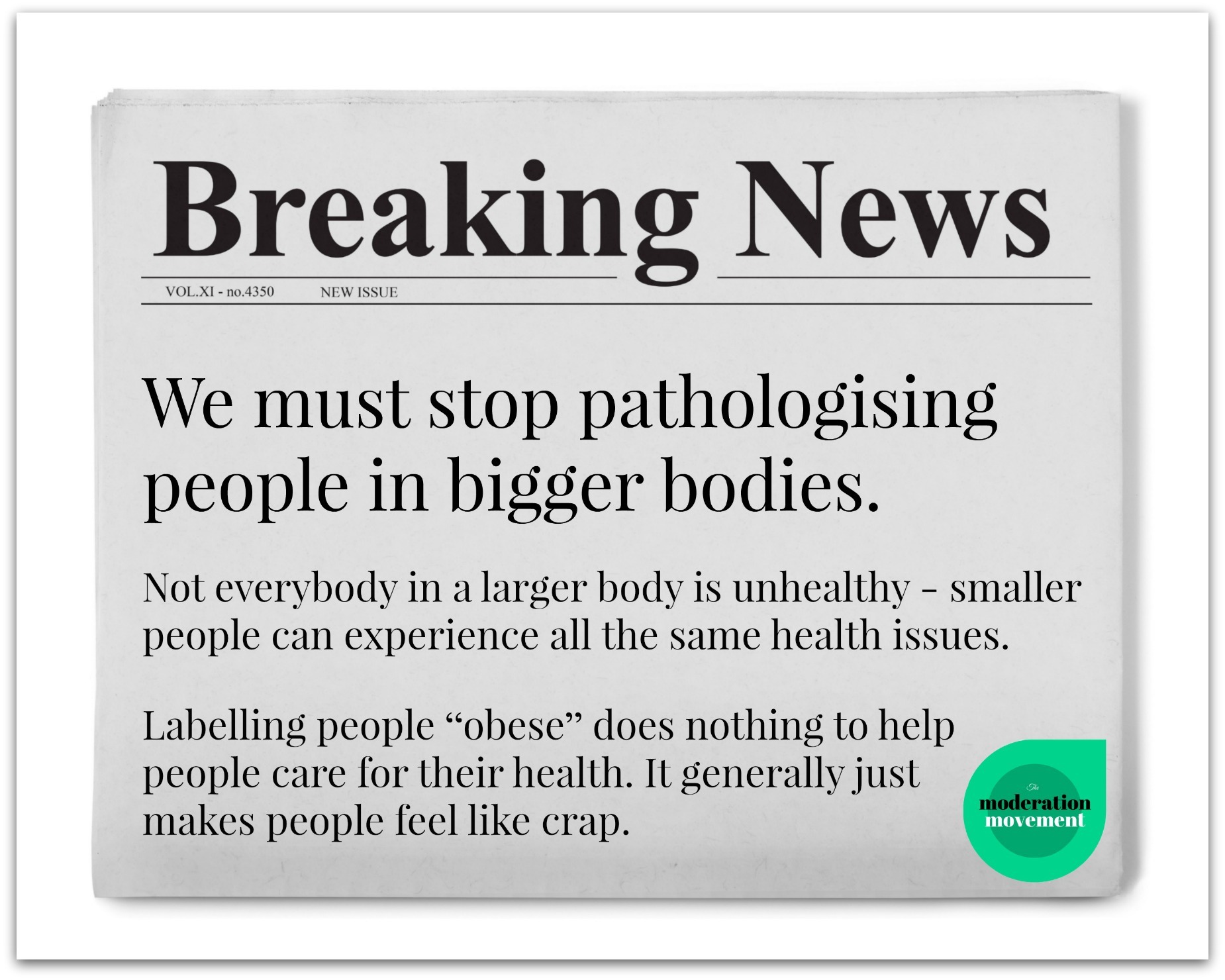We must stop pathologising people in bigger bodies.

Not everybody in a larger body is unhealthy and calling people “obese” does nothing to help people care for their health.
For example, a few weeks back on the radio, the headline “Obese men have worse sperm quality” was read out by one of the presenters.
When (many) people hear the word “obese”, they hear unacceptable, bad, undesirable, disgraceful or serious problem. Having a high BMI does not mean you are any of these things.
People can be classified “obese” as per the BMI scale and have perfectly good health and for men, good sperm quality.
In fact there is not one health issue that only larger people get. Thin people can suffer all the same health issues, including low sperm count, but we don’t pathologise all thin people – we don’t even have a word equivalent to “obese” for thinner people. Or if thin is the antonym, it doesn’t carry the stigma that the word “obese” does.
Yes there are people in larger bodies who have behaviours that may adversely influence their health, but there are thinner people who fit this bill too.
How do we know these men with low sperm quality have low quality sperm because of their weight and not because of a lifestyle factor such as diet or activity levels? We don’t.
If we, as a population, really care about helping people live healthy lives, we need to stop making people in larger bodies feel awful about themselves (weight stigma). How does making people feel shame about their body and terrible about themselves motivate people to change? It doesn’t. In fact, this study published in the American Journal of Public Health, shows how the public health implications of weight stigma are widely ignored and how this adversely affects health.
Obesity Stigma: Important Considerations for Public Health – www.ncbi.nlm.nih.gov/pmc/articles/PMC2866597/
Tackling weight stigma is one of the tenets of the Health At Every Size (HAES) Movement. You can learn more about HAES and other resources that back up why we must stop with the “war on obesity” here
– www.lovewhatyoueat.com.au/the-non-diet-approach-research/
